BLOG
Home Pros HVAC Blog
Check Out Our Latest Posts
We write about all things HVAC. Take a look through our articles!

By Ramsey Timmerman
•
14 Jun, 2023
Investing in a new HVAC system or upgrading your existing one can be a significant expense for homeowners. However, government rebates and incentives can help offset the cost while promoting energy efficiency and reducing your carbon footprint. In this blog post, we'll explore the various government rebate programs available for HVAC systems, the benefits of these programs, and how you can take advantage of them to save money and improve your home's energy efficiency. Types of Government Rebate Programs for HVAC Systems There are several government rebate programs available for homeowners who invest in energy-efficient HVAC systems. These programs aim to encourage the adoption of energy-saving technologies and reduce greenhouse gas emissions. Some of the most common government rebate programs include: 1. Federal tax credits: The U.S. federal government offers tax credits for energy-efficient HVAC systems through the Residential Energy Efficiency Tax Credit program. Homeowners can claim up to 10% of the cost of qualifying HVAC equipment, up to a maximum of $500. 2. State and local rebates: Many states, counties, and municipalities offer their own rebate programs for energy-efficient HVAC systems. These programs may include direct rebates, low-interest loans, or other financial incentives to help offset the cost of upgrading your HVAC system. 3. Utility rebates: Some utility companies also offer rebate programs for customers who invest in energy-efficient HVAC systems. These rebates can help reduce your monthly energy bills and may even provide additional incentives for upgrading your system. Benefits of Government Rebates for HVAC Systems There are several benefits to taking advantage of government rebate programs for HVAC systems: 1. Cost savings: Rebates and incentives can help offset the cost of purchasing and installing a new energy-efficient HVAC system, making it more affordable for homeowners. 2. Improved energy efficiency: Energy-efficient HVAC systems consume less energy, reducing your monthly utility bills and helping you save money in the long run. 3. Reduced environmental impact: By investing in an energy-efficient HVAC system, you can reduce your home's greenhouse gas emissions and contribute to a cleaner, more sustainable environment. 4. Increased home value: Energy-efficient HVAC systems can increase your home's value, making it more attractive to potential buyers if you decide to sell. How to Take Advantage of Government Rebates for HVAC Systems To take advantage of government rebates for HVAC systems, follow these steps: 1. Research available programs: Start by researching the various federal, state, local, and utility rebate programs available in your area. The Database of State Incentives for Renewables & Efficiency (DSIRE) is an excellent resource for finding information on available incentives. 2. Choose an energy-efficient HVAC system: When shopping for a new HVAC system, look for energy-efficient models that qualify for rebates and incentives. Look for systems with a high Seasonal Energy Efficiency Ratio (SEER) and Energy Star certification. 3. Hire a professional HVAC contractor: Work with a reputable HVAC contractor who is familiar with the rebate programs available in your area. They can help you choose the right system for your home and ensure that it is installed correctly to maximize energy efficiency. 4. Apply for rebates and incentives: Once your new HVAC system is installed, work with your contractor to apply for any available rebates and incentives. Be prepared to provide documentation, such as receipts and proof of installation, to support your application. In conclusion, government rebates for HVAC systems provide an excellent opportunity for homeowners to save money and improve their home's energy efficiency. By researching available programs, choosing an energy-efficient system, and working with a professional HVAC contractor, you can take advantage of these incentives and enjoy the benefits of a more comfortable and eco-friendly home.
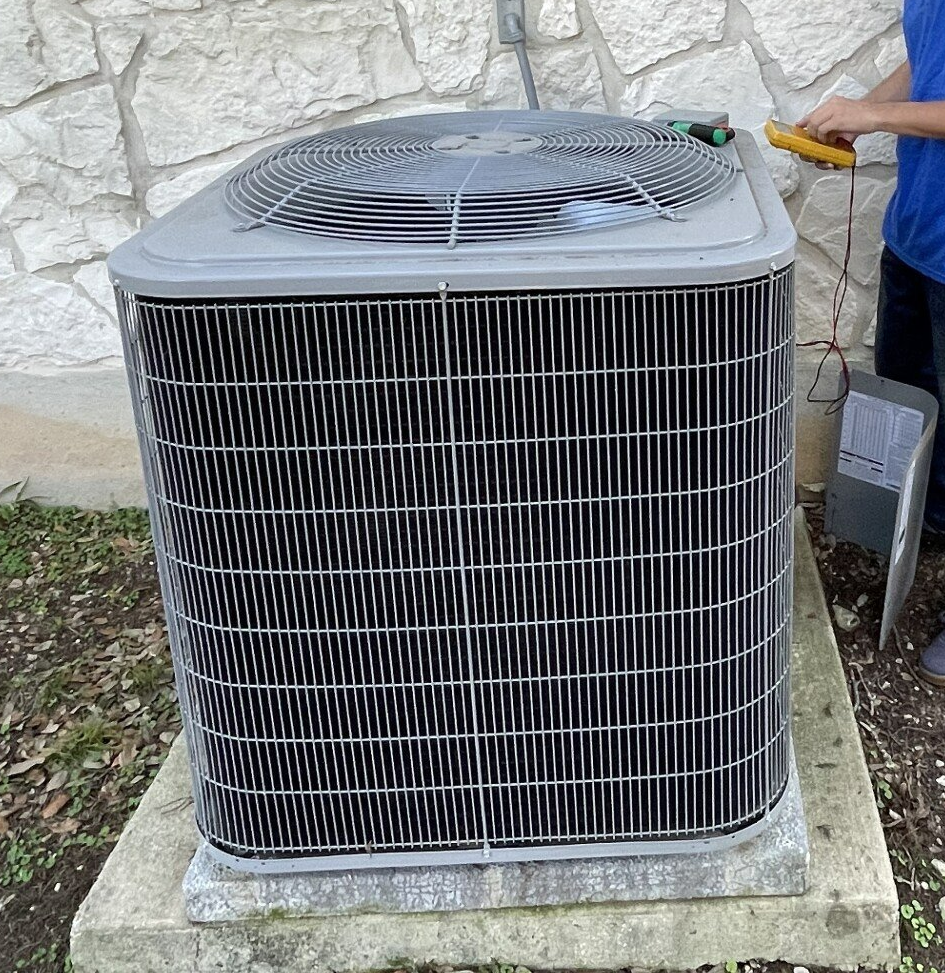
By Ramsey Timmerman
•
13 Jun, 2023
When it comes to efficient heating and cooling, heat pumps are gaining popularity as a versatile and eco-friendly solution. Unlike traditional HVAC systems that rely on fossil fuels for heating or cooling, heat pumps leverage the principles of thermodynamics to transfer heat from one place to another. In this blog post, we will explore the advantages of heat pumps, highlighting their energy efficiency, cost savings, and environmental benefits. Energy Efficiency: One of the primary advantages of heat pumps is their remarkable energy efficiency . Instead of generating heat by burning fuels, heat pumps extract heat from the air, ground, or water sources, making them highly efficient in both heating and cooling modes. By transferring heat rather than creating it, heat pumps can achieve significant energy savings, resulting in lower utility bills and reduced environmental impact. Heating and Cooling in One System: Heat pumps provide both heating and cooling functions within a single system. In colder months, they extract heat from the outdoor air, ground, or water sources and transfer it indoors for heating. During warmer months, the process is reversed, with heat pumps extracting heat from the indoor space and transferring it outside, providing efficient cooling. This versatility eliminates the need for separate heating and cooling systems, simplifying installation, maintenance, and operation. Cost Savings: Heat pumps offer long-term cost savings for homeowners. Their energy-efficient operation translates into reduced energy consumption, leading to lower heating and cooling costs compared to traditional systems. While the upfront cost of installing a heat pump may be higher, the energy savings over time can help recover the initial investment. Additionally, some regions offer incentives, tax credits, or rebates for installing energy-efficient heat pump systems, further enhancing the cost-effectiveness. Environmental Benefits: With the growing focus on sustainability, heat pumps are an environmentally friendly choice for heating and cooling. By relying on renewable energy sources, such as heat from the air or ground, heat pumps significantly reduce carbon emissions and reliance on fossil fuels. They contribute to lower greenhouse gas emissions and help combat climate change while providing efficient comfort for homeowners. Consistent and Even Comfort: Heat pumps distribute heat or cool air more evenly throughout the space, resulting in consistent and comfortable indoor temperatures. Unlike traditional heating systems that may create hot or cold spots, heat pumps maintain a balanced climate, ensuring optimal comfort in every corner of the room. Additionally, heat pumps offer precise temperature control, allowing users to set desired temperatures and maintain them consistently. Low Maintenance Requirements: Heat pumps generally require less maintenance compared to traditional heating and cooling systems. With fewer mechanical components and no combustion processes involved, there are fewer parts that can wear out or require regular servicing. Routine maintenance typically involves checking refrigerant levels, cleaning filters, and ensuring proper airflow. Regular professional inspections ensure optimal performance and address any potential issues promptly. Conclusion: Heat pumps provide a highly efficient, cost-effective, and environmentally friendly solution for year-round comfort. With their ability to both heat and cool, energy-efficient operation, cost savings, and consistent comfort, heat pumps are becoming an increasingly popular choice for homeowners. By embracing heat pump technology, you can enjoy efficient heating and cooling while reducing your carbon footprint and contributing to a more sustainable future.

By Ramsey Timmerman
•
08 Jun, 2023
Heating, ventilation, and air conditioning (HVAC) systems have become an integral part of our modern lives, providing comfort and climate control in homes, offices, and various indoor environments. But have you ever wondered about the origins and evolution of HVAC technology? In this blog post, we'll take a journey through time and explore the fascinating history of HVAC, from ancient innovations to the advanced systems we rely on today. Ancient Innovations: The concept of controlling indoor climate dates back thousands of years. Ancient civilizations, such as the Romans and Greeks, devised innovative heating systems using underfloor heating and hypocausts. These systems circulated warm air through ducts or pipes beneath the floors, creating comfortable indoor spaces. In ancient China, intricate systems of manually operated fans and water-powered rotary fans were used for cooling purposes. Industrial Revolution and Advancements: The Industrial Revolution in the 18th and 19th centuries marked a significant turning point in HVAC history. The invention of steam-powered heating systems, such as the radiator, allowed for centralized heating in large buildings and factories. The development of mechanical ventilation systems, driven by steam or water power, improved air circulation and quality in crowded spaces. Electric Era and Air Conditioning: The advent of electricity in the late 19th century revolutionized the HVAC industry. In 1902, Willis Carrier invented the first modern air conditioning system. Initially designed to control humidity in a printing plant, Carrier's invention had a profound impact on human comfort. Air conditioning technology quickly advanced, enabling cooling in homes, offices, and commercial spaces, transforming the way we live and work. Energy Efficiency and Environmental Concerns: In recent decades, there has been a growing focus on energy efficiency and environmental sustainability in HVAC systems. Stricter regulations and standards have been implemented to reduce the environmental impact of HVAC operations. Innovations such as programmable thermostats, energy-efficient components, and eco-friendly refrigerants have emerged, aiming to enhance system performance while minimizing energy consumption and greenhouse gas emissions. Smart HVAC Systems and Automation: The rise of smart technology and automation has brought about significant advancements in HVAC systems. Smart thermostats, connected through Wi-Fi and integrated with sensors and algorithms, allow for precise temperature control and energy optimization. Building management systems and IoT (Internet of Things) technology enable centralized control and monitoring of HVAC systems in large commercial spaces, improving energy efficiency and occupant comfort. Future Trends: The future of HVAC promises even more exciting innovations. Developments in renewable energy, such as solar power and geothermal heating and cooling, are gaining traction. Energy recovery ventilation systems are becoming more prevalent, capturing and utilizing waste heat or cool air for improved efficiency. Additionally, advancements in air purification technologies aim to enhance indoor air quality and combat pollutants. Conclusion: The evolution of HVAC technology has come a long way since ancient civilizations implemented innovative heating and cooling systems. From the ingenuity of the past to the cutting-edge technologies of today, HVAC has become an essential aspect of our modern lives, providing comfort, climate control, and improved indoor air quality. As we continue to prioritize energy efficiency HVAC systems and sustainability, we can expect even more exciting advancements in the future, further enhancing our HVAC systems and the way we experience indoor environments.
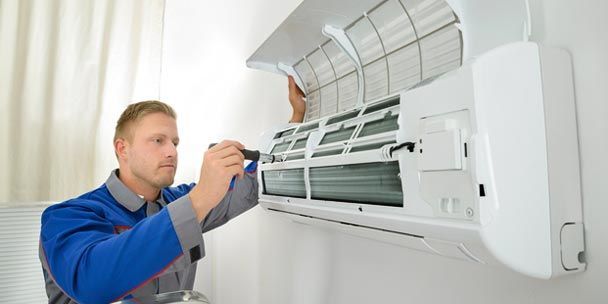
By Ramsey Timmerman
•
08 Jun, 2023
An efficiently functioning air conditioning (AC) system is essential for maintaining a comfortable indoor environment, especially during hot summer months. However, like any mechanical system, AC units can encounter issues that require repair. In this blog post, we'll discuss some common AC problems homeowners may face, provide troubleshooting tips for minor issues, and highlight when it's necessary to call a professional for AC repair . Insufficient Cooling: If your AC system is not cooling your home adequately, it may be due to various factors. Start by checking the thermostat settings and ensuring they are correctly configured. Clean or replace the air filters to improve airflow. Additionally, check for obstructions around the outdoor unit and clear any debris that might hinder its performance. However, if these troubleshooting steps don't resolve the issue, it's best to contact a professional AC repair technician to diagnose and fix the problem. S trange Noises: Unusual noises coming from your AC unit can be indicative of underlying issues. Rattling, grinding, or banging sounds may suggest loose components, motor problems, or a failing compressor. Turn off the system and inspect for any visible loose parts. However, given the complexity of AC systems, it's advisable to contact an experienced AC repair technician to identify and resolve the source of the noise effectively. Frequent Cycling or Constant Running: If your AC unit is cycling on and off too frequently or continuously running without reaching the desired temperature, it could be a sign of a malfunctioning component. Check the air filters and ensure they are clean. Verify that the thermostat is functioning correctly and calibrated accurately. If the issue persists, it may be due to problems with the blower motor, refrigerant levels, or electrical connections. Contact a professional AC repair technician to diagnose and fix the underlying cause of the issue. Water Leakage: Water leakage from your AC unit can indicate a clogged condensate drain line or a refrigerant leak. Check the condensate drain line for any blockages and clean it if necessary. If the problem persists, it's important to contact an AC repair professional to inspect the system and address the issue properly, as refrigerant leaks require specialized knowledge and equipment. Electrical Issues: Electrical problems can pose a safety risk and should be addressed by a professional. If you experience frequent tripping of circuit breakers when the AC unit is running or notice burning smells, it's crucial to turn off the system and contact an AC repair technician immediately. Electrical issues can result from faulty wiring, overloaded circuits, or damaged components, and require professional expertise to diagnose and resolve. Conclusion: While minor AC issues can sometimes be resolved with simple troubleshooting steps, it's important to recognize when professional AC repair is necessary. Common problems like insufficient cooling, strange noises, frequent cycling or constant running, water leakage, and electrical issues should be addressed by experienced technicians to ensure proper diagnosis and repair. Regular AC maintenance and prompt attention to AC problems can help extend the lifespan of your system and ensure a comfortable and reliable cooling experience in your home.
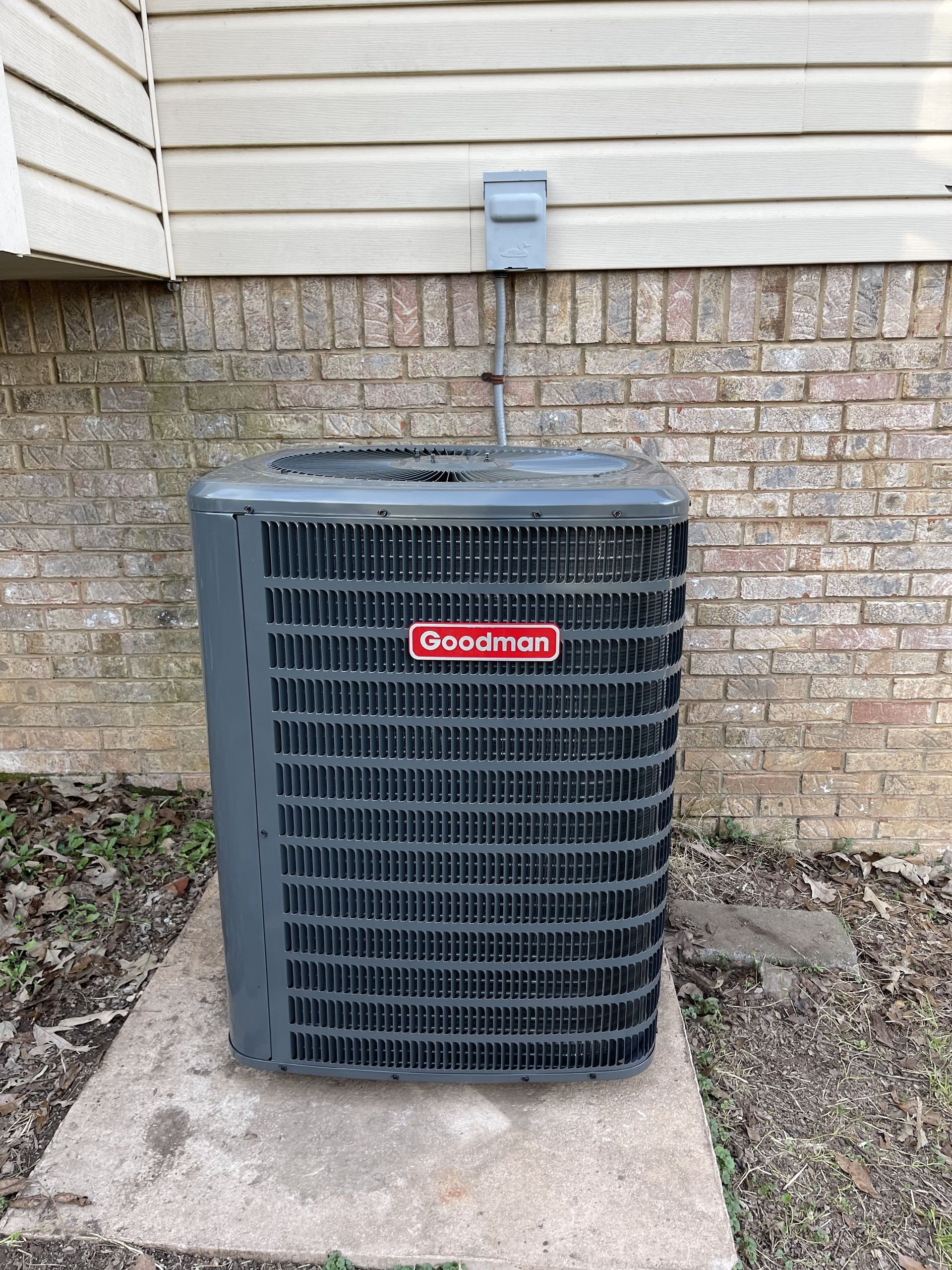
By Ramsey Timmerman
•
02 Jun, 2023
Maintaining your AC system is crucial for its optimal performance and longevity. Regular maintenance helps prevent breakdowns, ensures energy efficiency, and promotes a comfortable indoor environment. While some maintenance tasks require professional assistance, there are several simple steps homeowners can take to keep their AC system running smoothly. In this blog post, we'll provide you with practical AC maintenance tips that you can easily implement to prolong the lifespan and efficiency of your cooling system. Regularly Clean and Replace Air Filters: One of the most important maintenance tasks is to clean or replace your air filters regularly. Clogged filters restrict airflow, making your AC system work harder and less efficiently. Check your air filters every one to three months and clean or replace them as needed. This simple step not only improves indoor air quality but also helps your AC system operate at its best. Clear Obstructions from Vents and Registers: Ensure that your vents and registers are free from obstructions such as furniture, rugs, or curtains. Blocked vents restrict airflow and can disrupt the cooling distribution throughout your home. Regularly check and clear any obstructions to allow proper airflow and maximize the effectiveness of your AC system. Clean the Outdoor Unit: The outdoor unit of your AC system can accumulate dirt, debris, and leaves over time. Regularly inspect and clean the outdoor unit to remove any buildup that can obstruct airflow or affect the system's performance. Use a garden hose to gently rinse the unit and remove dirt. Be cautious not to bend or damage any fins during the cleaning process. Check and Clean the Condensate Drain: The condensate drain line removes excess moisture from your AC system. Over time, it can become clogged with dirt, mold, or algae, leading to water leakage or reduced cooling efficiency. Inspect the condensate drain line and clean it using a mixture of bleach and water to prevent clogs and ensure proper drainage. Maintain a Comfortable Temperature: Setting your thermostat to a reasonable temperature can help reduce the strain on your AC system. Avoid extreme temperature settings, as they can increase energy consumption and put unnecessary stress on the unit. Aim for a comfortable temperature that balances your comfort needs and energy efficiency. Schedule Professional Maintenance: While there are maintenance tasks homeowners can perform, it's essential to schedule professional AC maintenance at least once a year. A qualified HVAC technician can inspect and service your system thoroughly, identify potential issues, and perform any necessary repairs or adjustments. Professional maintenance helps optimize performance, increase energy efficiency, and extend the lifespan of your AC system. Conclusion: Regular AC maintenance is key to keeping your cooling system operating efficiently and ensuring a comfortable indoor environment. By following these simple steps, including cleaning or replacing air filters, clearing obstructions from vents, cleaning the outdoor unit and condensate drain, maintaining a comfortable temperature, and scheduling professional maintenance, homeowners can significantly contribute to the longevity and performance of their AC systems. Remember that while some tasks can be done independently, it's crucial to consult with HVAC professionals for complex repairs or when in doubt. By investing time and effort in AC maintenance, you can enjoy reliable cooling and lower energy costs for years to come.
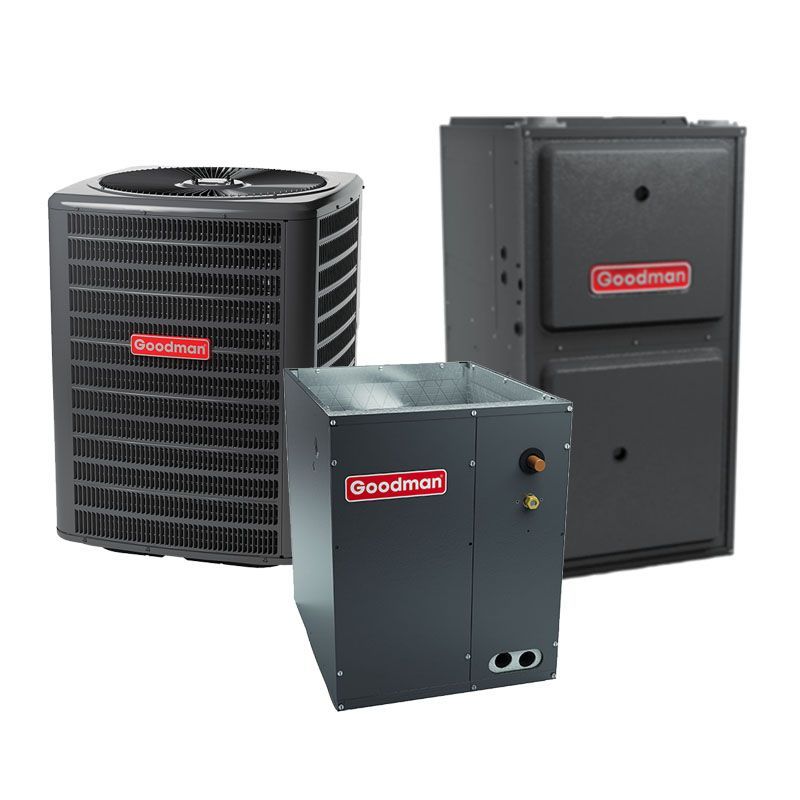
By Ramsey Timmerman
•
02 Jun, 2023
A well-functioning HVAC system is essential for maintaining a comfortable home environment. However, like any complex system, HVAC units can encounter problems over time. Understanding common HVAC issues and knowing how to troubleshoot them can save homeowners time, money, and potential discomfort. In this blog post, we'll explore some of the most common HVAC problems and provide helpful troubleshooting tips to address them. Lack of Airflow: One common issue homeowners may encounter is a lack of airflow from their HVAC system. If you notice weak or no airflow from the vents, the problem might lie with clogged air filters, blocked vents, or a malfunctioning blower motor. Start by checking and replacing the air filters regularly, as dirty filters can restrict airflow. Ensure that all vents are open and unobstructed, allowing air to flow freely throughout your home. If the problem persists, it may be necessary to contact a professional to inspect and repair the blower motor. Uneven Cooling or Heating: Uneven cooling or heating in different areas of your home can be frustrating. This issue can arise due to improper ductwork design, blocked vents, or problems with the thermostat. Check the dampers in the ductwork to ensure they are adjusted properly, allowing for balanced airflow. Unblock any vents that may be covered or obstructed by furniture or other objects. Additionally, calibrate your thermostat or consider replacing it if it is not functioning correctly. Properly functioning dampers and unobstructed vents, along with a calibrated thermostat, can help distribute airflow evenly throughout your home. Strange Noises: Unusual noises coming from your HVAC system can be a cause for concern. Banging, rattling, or squealing sounds may indicate problems with the blower motor, fan, or loose components. Start by tightening any loose components, such as screws or bolts, and lubricating moving parts, as lack of lubrication can cause friction and noise. However, if the noises persist, it's best to schedule a professional maintenance visit to address more complex issues and prevent further damage. Refrigerant Leaks: Refrigerant is essential for the cooling process in air conditioning systems. If you notice a decline in cooling performance or warm air blowing from your vents, it could be due to a refrigerant leak. Refrigerant leaks can occur due to damaged coils or connections. It's important to note that handling refrigerant requires specialized knowledge and equipment, so it's best to contact a professional HVAC technician to detect and repair the leak. Thermostat Malfunction: A malfunctioning thermostat can lead to temperature inconsistencies or unresponsiveness. If you notice that your thermostat is not displaying the correct temperature or is unresponsive, start by checking the battery and replacing it if necessary. Try resetting the thermostat by turning it off and on or following the manufacturer's instructions. If the problem persists, consider replacing the thermostat to ensure accurate temperature control. HVAC System Short Cycling: Short cycling refers to when the HVAC system turns on and off frequently, without completing a full cooling or heating cycle. This can be caused by various factors, including clogged air filters, blocked vents, or issues with the system's components. Start by checking the air filter and ensuring proper airflow throughout the system. Unblock any vents that may be obstructed and ensure they are not covered by furniture or objects. If the issue persists, it's best to contact a professional HVAC technician to inspect the system for underlying problems. Conclusion: As a homeowner, understanding common HVAC problems and knowing how to troubleshoot them can help you maintain a comfortable and efficiently functioning HVAC system. By regularly checking and replacing air filters, ensuring proper airflow and ventilation, and addressing issues with the thermostat or other components, you can prevent or resolve many common HVAC problems. However, it's important to note that complex issues or repairs should be handled by HVAC professionals to avoid further damage or safety hazards. Regular maintenance and professional inspections are also crucial for keeping your HVAC system in optimal condition. By taking proactive measures and staying vigilant, you can ensure that your HVAC system operates smoothly, providing you with comfort throughout the year.
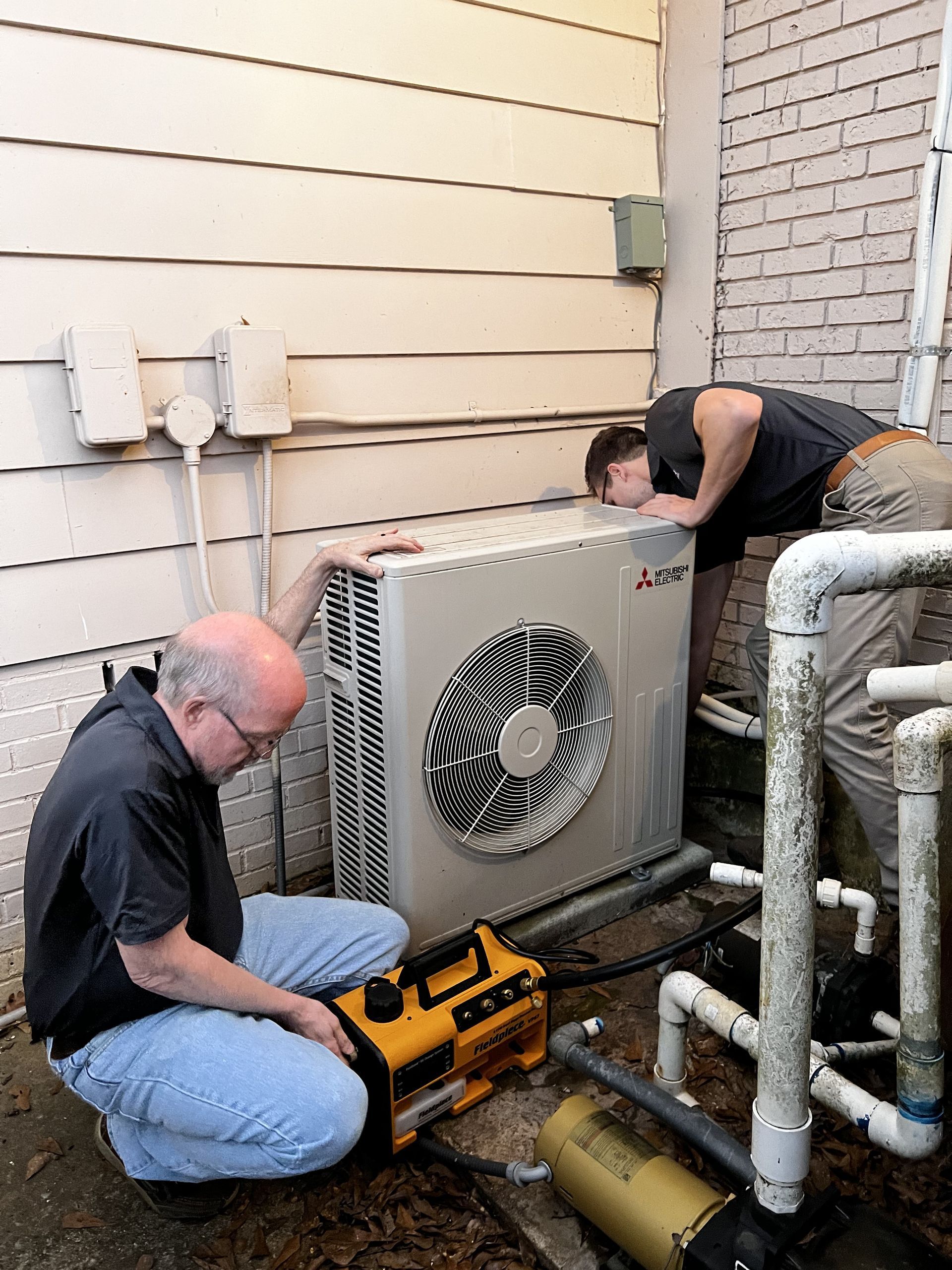
By Ramsey Timmerman
•
25 May, 2023
As homeowners, we strive for comfortable indoor environments while minimizing our energy consumption and environmental impact. When it comes to heating, ventilation, and air conditioning (HVAC) systems, energy efficiency is a key consideration. In this blog post, we will explore the world of energy-efficient HVAC systems and the sustainable options available for Birmingham homes. From understanding energy efficiency to advanced cooling technologies, heat pump systems, and smart thermostats, we'll discover how these choices can save energy, reduce utility bills, and contribute to a greener future. Let's dive into the world of energy efficiency and find the best options for your home. Understanding Energy Efficiency: Energy efficiency refers to the ability of an HVAC system to provide the desired comfort levels while minimizing energy consumption. Higher energy efficiency translates to reduced energy waste and lower utility bills. The Seasonal Energy Efficiency Ratio (SEER) rating is commonly used to measure the efficiency of air conditioning systems, with higher SEER ratings indicating greater efficiency. Advanced Cooling Technologies: Modern HVAC systems incorporate advanced cooling technologies that enhance energy efficiency. These include: Variable-speed compressors: These compressors adjust their speed based on cooling needs, providing precise temperature control and consuming less energy than traditional fixed-speed compressors. Two-stage compressors: These compressors operate at two different capacities, allowing the system to adjust to changing cooling demands and optimizing energy usage accordingly. Demand-controlled ventilation: By monitoring indoor air quality and occupancy levels, demand-controlled ventilation systems adjust the amount of outside air brought into the building, reducing energy waste. Heat Pump Systems: Heat pump systems are energy-efficient alternatives to traditional HVAC systems. They can provide both heating and cooling functions and operate by transferring heat from one area to another, rather than generating heat. Birmingham homeowners can consider two types of heat pumps: Air-source heat pumps: These extract heat from outdoor air during winter for heating and transfer heat outside during summer for cooling. Geothermal heat pumps: These utilize the stable temperatures underground or underwater to extract or dissipate heat, providing highly efficient heating and cooling. S mart Thermostats and Energy Management: Smart thermostats offer advanced energy management features that optimize HVAC system performance. These include: Precise temperature control: Smart thermostats allow you to program specific temperature settings for different times of the day, ensuring optimal comfort and energy efficiency. Remote access and scheduling: You can control your HVAC system from anywhere using smartphone apps, allowing you to adjust settings or schedule temperature changes even when you're away from home. Energy usage tracking: Smart thermostats provide insights into your energy consumption patterns, helping you identify opportunities for further energy savings. Integration with home automation: Smart thermostats can integrate with other smart devices, such as occupancy sensors or voice assistants, to optimize energy usage based on occupancy or voice commands. Conclusion: Energy-efficient HVAC systems offer homeowners in Birmingham the opportunity to create comfortable indoor environments while reducing their energy consumption and environmental impact. By understanding energy efficiency, exploring advanced cooling technologies, considering heat pump systems, and utilizing smart thermostats, you can achieve significant energy savings and contribute to a greener future. When it comes to upgrading or selecting HVAC systems, consult with professionals who can assess your specific needs and guide you toward the most suitable and energy-efficient options for your home.
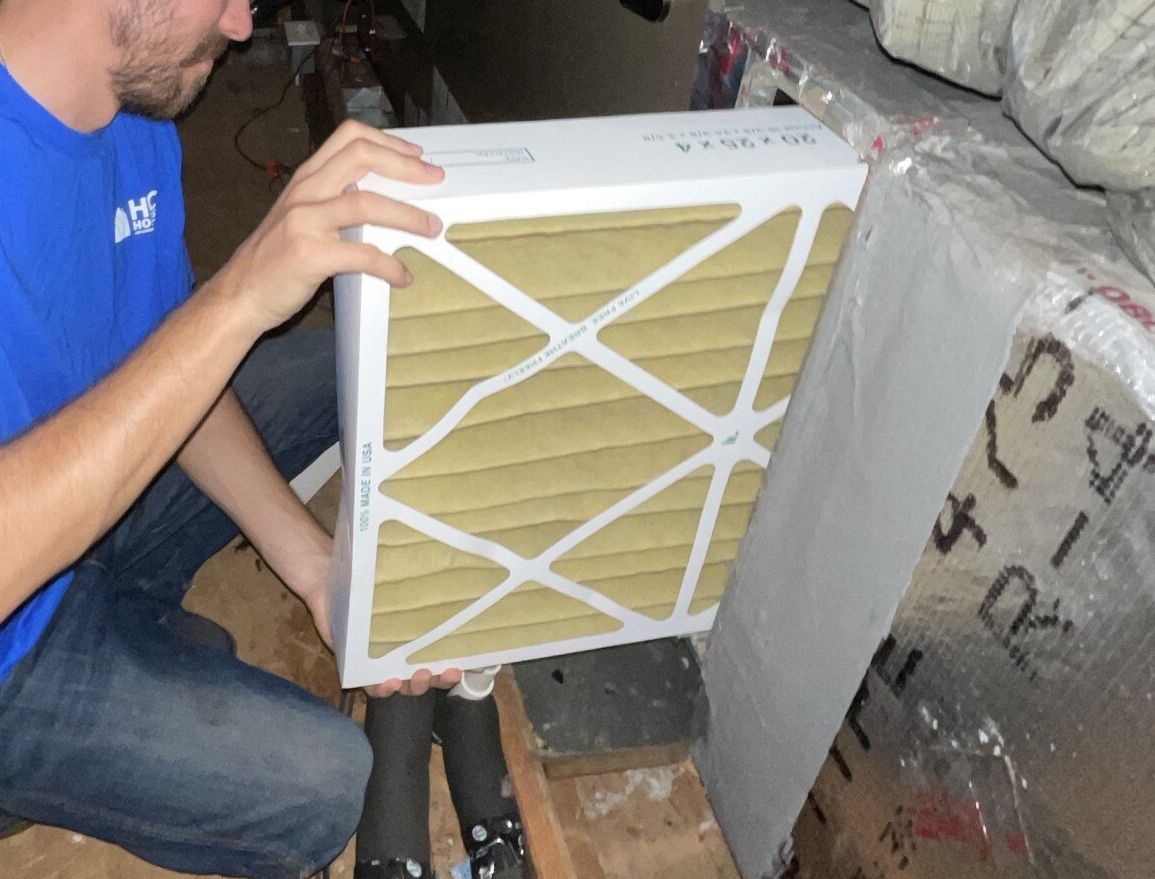
By Ramsey Timmerman
•
25 May, 2023
The quality of the air we breathe has a significant impact on our health and overall well-being. Whether at home or in the workplace, poor indoor air quality (IAQ) can lead to various health issues and even affect productivity. In this blog post, we'll delve into the importance of indoor air quality and explore how your HVAC system plays a vital role in maintaining a healthy and productive environment. From understanding IAQ to the functions of HVAC systems and practical tips for improvement, let's discover the connection between IAQ, your HVAC system, and your well-being. Your HVAC system plays a crucial role in maintaining good IAQ. Here's how: Air Filtration: The air filters in your HVAC system capture airborne particles, such as dust, pollen, pet dander, and other allergens. Regularly cleaning or replacing these filters ensures cleaner air and reduces the circulation of pollutants. Ventilation: Proper ventilation is essential for maintaining fresh indoor air. HVAC systems incorporate ventilation mechanisms that help exchange stale indoor air with fresh outdoor air. This process removes indoor pollutants and brings in oxygen-rich air. Humidity Control: Controlling humidity levels is important for preventing mold growth and maintaining a comfortable indoor environment. HVAC systems can regulate humidity by removing excess moisture during the cooling process. Air Purification: Advanced HVAC systems offer additional air purification features. These include UV germicidal lights, which neutralize bacteria and viruses, and electronic air cleaners, which capture smaller particles that may bypass regular filters. Improving IAQ goes beyond HVAC system functions. Here are some additional tips: Keep a clean environment by regularly dusting and vacuuming to reduce the presence of allergens. Use natural cleaning products that are free from harsh chemicals. Minimize pollutant sources, such as smoking indoors or using certain types of air fresheners. Consider the use of indoor plants, which can help improve air quality by naturally filtering and oxygenating the air. Conclusion: Maintaining good indoor air quality is vital for your health and well-being. Your HVAC system plays a significant role in achieving and sustaining clean and fresh indoor air. By understanding IAQ, utilizing the functions of your HVAC system, and following practical tips, you can create a healthier and more productive environment. Remember to schedule regular HVAC maintenance and consult professionals for expert guidance on optimizing IAQ in your home or workplace.
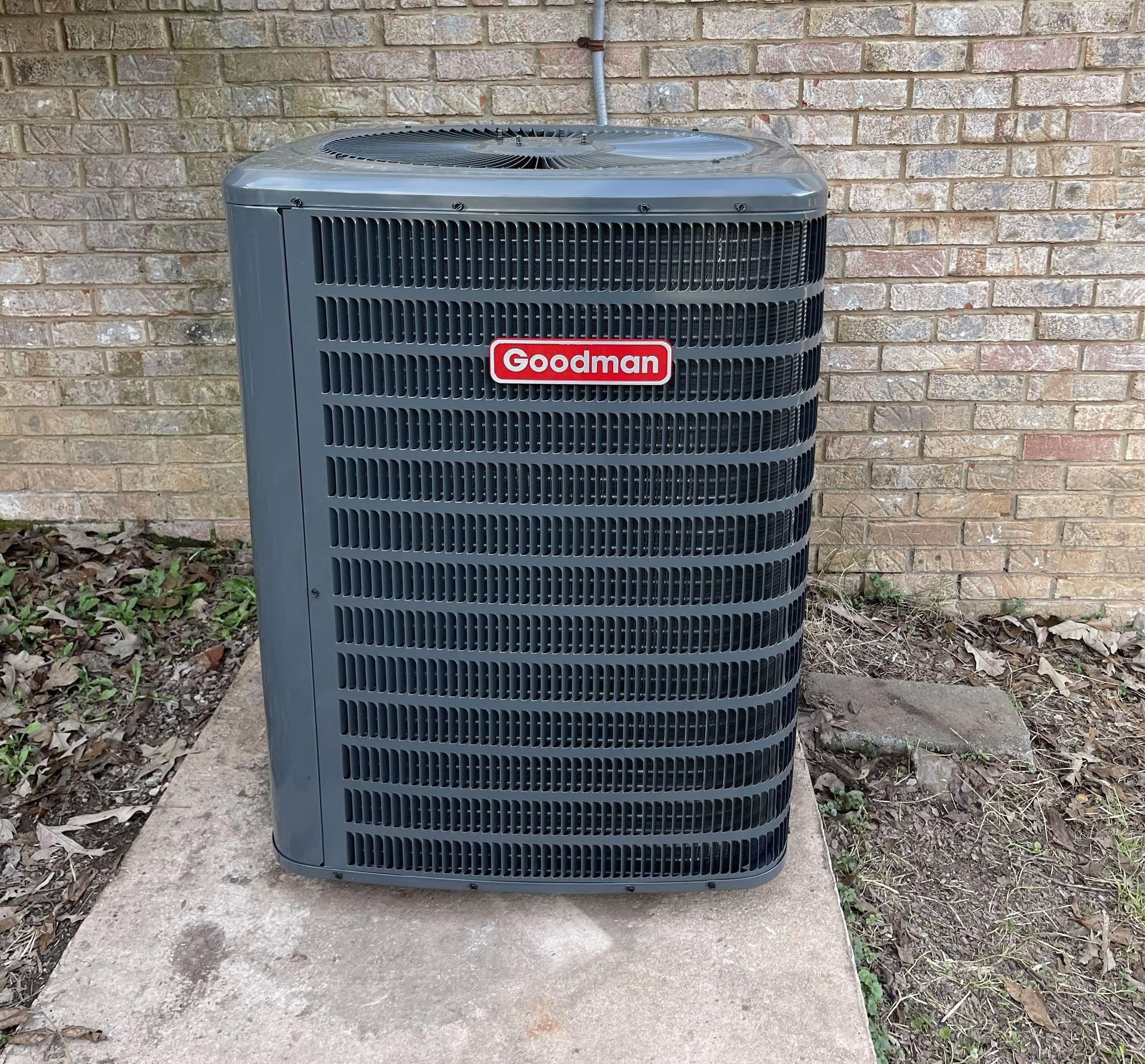
By Ramsey Timmerman
•
11 May, 2023
The average lifespan of an AC unit: The average lifespan of an AC unit is about 10-15 years. However, with proper maintenance, it is possible for an AC unit to last up to 20 years or more. It's important to keep in mind that this can vary depending on factors such as usage, climate, and the quality of the unit itself. Factors that can affect the lifespan of your AC unit: As mentioned above, there are several factors that can impact the lifespan of your AC unit. These include: Usage: If you run your AC unit constantly or at high levels, it may wear out more quickly. Climate: If you live in a hot and humid climate, your AC unit may need to work harder and may wear out faster. Maintenance: Regular maintenance can extend the life of your AC unit. If you neglect maintenance, your unit may not last as long. Quality: The quality of your AC unit can also impact its lifespan. A higher-quality unit may last longer than a cheaper, lower-quality one. Signs that your AC unit may be reaching the end of its life: Even with proper maintenance, your AC unit will eventually need to be replaced. Here are some signs that your unit may be reaching the end of its life: Age: If your unit is approaching or exceeding its average lifespan, it may be time to start thinking about a replacement. Frequent breakdowns: If you're constantly having to repair your AC unit, it may be more cost-effective to replace it. Decreased efficiency: As your unit ages, it may become less efficient, which can lead to higher energy bills and less effective cooling. Strange noises or smells: If you notice unusual noises or smells coming from your AC unit, it may be a sign that it's time to replace it. Conclusion: Your AC unit is an important investment in your home and comfort, and knowing how long you can expect it to last is crucial. By understanding the factors that can affect its lifespan and recognizing the signs that it may be time for a replacement, you can ensure that you stay cool and comfortable for years to come.
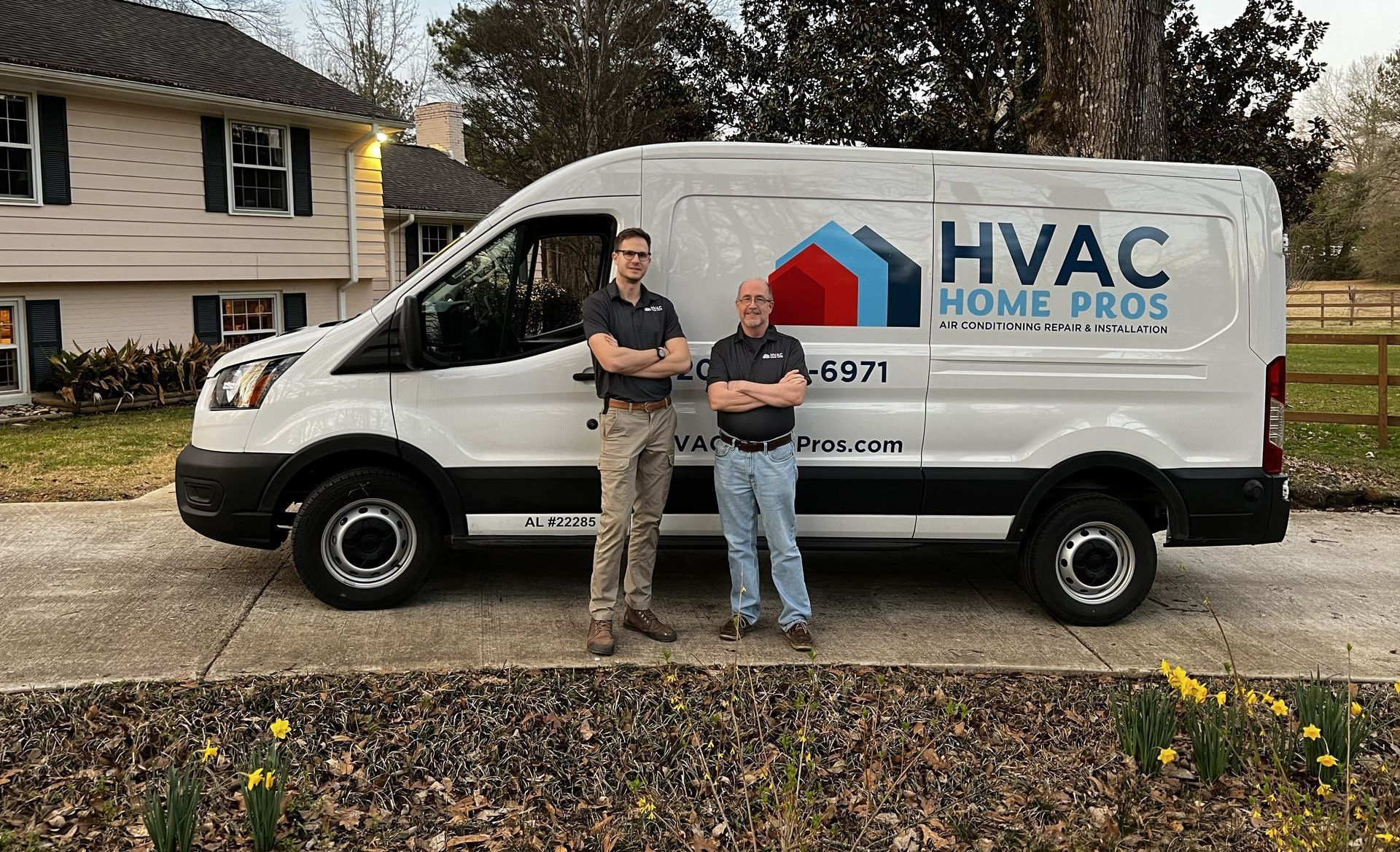
By Ramsey Timmerman
•
11 May, 2023
As your trusted Birmingham HVAC company, we want to make sure that you're getting accurate information about your heating and cooling system. Unfortunately, there are many common HVAC myths out there that can mislead homeowners and cause unnecessary worry. In this blog post, we'll debunk some of the most pervasive HVAC myths and give you the real facts you need to keep your home comfortable and energy-efficient. Myth #1: Closing Vents in Unused Rooms Saves Energy One of the most common HVAC myths is that closing vents in unused rooms will save energy and money. In reality, closing vents can actually cause your HVAC system to work harder and less efficiently. Closing vents restricts airflow, which can cause a build-up of pressure in your ducts and damage your system over time. Instead, focus on sealing air leaks and upgrading insulation to improve energy efficiency. Myth #2: Regular HVAC Maintenance is a Waste of Money Some homeowners believe that HVAC maintenance is unnecessary and a waste of money. However, regular maintenance is essential for ensuring the longevity and efficiency of your system. Neglecting maintenance can lead to costly breakdowns and repairs, and even shorten the lifespan of your HVAC system. Regular maintenance includes tasks such as cleaning or replacing air filters, checking refrigerant levels, and inspecting ductwork. Myth #3: Turning the Thermostat Way Up or Down Heats or Cools Your Home Faster It's a common misconception that turning the thermostat way up or down will heat or cool your home faster. In reality, your HVAC system can only heat or cool your home at a certain rate, regardless of the temperature setting. Turning the thermostat up or down too high will simply cause your system to work harder and longer, without actually changing the temperature any faster. Myth #4: Closing Your Doors and Windows Keeps Your Home Cooler Another common myth is that closing your doors and windows will keep your home cooler. While this may work in some cases, it can actually restrict airflow and cause your HVAC system to work harder. Instead, consider using shades or curtains to block out direct sunlight, and use ceiling fans to circulate air throughout your home. Myth #5: Bigger HVAC Systems are Always Better Finally, many homeowners believe that bigger HVAC systems are always better, assuming that they will provide better heating and cooling for larger homes. However, installing an HVAC system that is too large for your home can actually lead to inefficiency, higher energy bills, and uncomfortable temperature fluctuations. The key is to choose an HVAC system that is appropriately sized for your home, based on factors such as square footage, insulation, and climate. Conclusion: By understanding and debunking these common HVAC myths, you can ensure that your heating and cooling system is running efficiently and effectively, without wasting energy or money. If you have any questions or concerns about your HVAC system, don't hesitate to contact our Birmingham HVAC experts for advice and assistance.
Quick & Reliable
We will answer any calls or questions in less than 5 minutes!
Don't be a stranger!
6 Office Park Cir suite 215, Mountain Brook, AL 35223
1201 Powder Plant Rd #7, Bessemer, AL 35022
Air Conditioning Services
AC Repair
AC Replacement
AC Installation
AC Maintenance
Mini-Split Systems
Heating Services
Heating Repair
Heating Replacement
Heating Installation
Heating Maintenance
Heat Pumps
© 2024
All Rights Reserved | HVAC Home Pros - Air Conditioning Repair and Installation | AL # 22285
